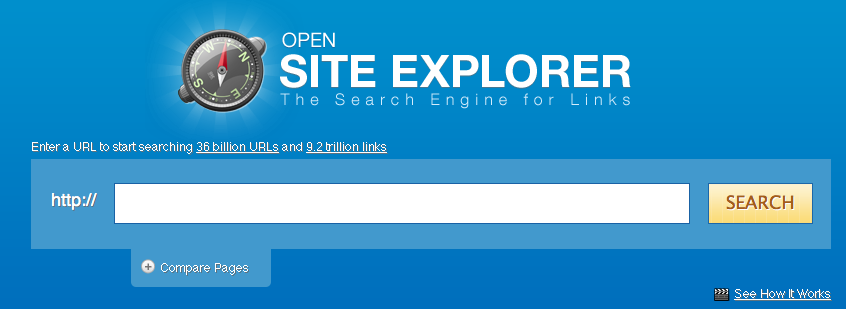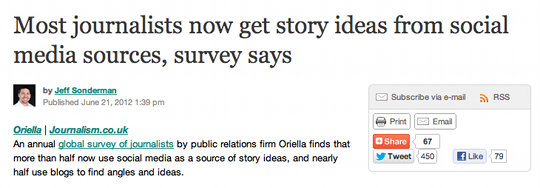Calling go-getting venue marketers! In this series we discuss the basics of online marketing for venues. We’ll talk about social media, SEO, search marketing and a lot more - all great (and often free) ways to generate new customers for your venue. Enjoy!
As we touched on in the first blog in this series, linkbuilding - the process of encouraging other websites to link to your own - has long been a fundamental part of online marketing.
In recent years, Google has reduced the significance of linkbuilding by introducing changes to the way it views links. It has done this to cut down on people manipulating the system. Spammy links - such as those from websites built for the sole purpose of trading in links - are now more likely to harm your website than help it.
Linkbuilding done the right way, though, is still a worthwhile pursuit. High quality links have a positive effect on how your website ranks on Google. Ignoring them completely, and you could be missing a trick. Here are a few pointers.
What is a bad link?
When people first realised that Google saw a link from one website to another as a vote of confidence, which would affect that website's search ranking, they saw it as an opportunity. Why not create websites with the sole purpose of linking to other websites, for a fee?
These 'link farms,' as they became known, were the first exponents of bad SEO. A new website could pay for a thousand links, and quickly seem themselves jump up in the search rankings. This was all very well, but it wasn't good for the person searching Google for genuine quality results - and therefore, it wasn't good for Google.
Link farms are now very much 'taboo', and accepting links from them can harm your online fortunes. As a general rule, a website which appears to have no purpose other than linking out to other websites, or is essentially irrelevant to you, or is best avoided. Indeed, any digital marketing company which offers you "instant results", or to make you "top of Google within 2 weeks", is probably likely to do it through bad linkbuilding. Avoid at all costs.
Next on Google's hit list was "guest blogging" - where websites would swap articles for the sole purpose of linking to one another. Most website owners will have received an email from somebody offering to write content for their blog. While there is nothing strictly wrong from linking to a website from a guest blog, it is always best to turn offers like this down. Google is good at identifying people who are trying to benefit from link building, and it's just not worth the risk. Unless you know and trust the person offering content well, it's safer to say no.
By extension of this, it is never, ever a good idea to pay for a link from another website. Anyone who charges for this will be a bad guy in Google's eyes, and is therefore best avoided.
So what is good?
A great way to tell if a website is worth having a link from is to look at its Domain Authority. This, essentially, tells you how highly a website is perceived by Google. Use a tool such as Opensite Explorer to find a website's Domain Authority - the higher the number, the better.
In general terms, well known publishers tend to score well on this (e.g. Guardian Online or Time Out), as do governmental or educational organisations. Any natural PR you can get is always likely to result in a worthwhile link, so journalists are great people to engage.
This is particularly the case if the website is relevant to your niche. Event Magazine, then, is great for event venues. Or a community centre would do well to be featured on its local authority website.
Ultimately, if the website in question produces regular, unique content which is relevant to your own website, then it probably passes the test. Otherwise, it probably isn't worth the time.
How to get attention
Such has been the negative attention around linkbuilding recently, that most of the 'good' websites, providing worthwhile links, are unlikely to link to you without good reason. A speculative email to them will likely have a low success rate. To get their attention, you need to be proactive.
Producing regular content about your services will help you to drive traffic to your site, and get people's attention. Use your blog or your social media to do this - we'll have some tips and trick on this in a later post.
As mentioned above, a feature from a relevant publication is always helpful. Journalists and bloggers use Twitter a lot, so identify people who write about topics relevant to you, and tweet them with interesting news or updates.
Information and statistics relevant to your industry are also likely to be picked up on by people. It might be something about the number of people booking Christmas Parties at your venue compared to last year, or a change in average budgets you've noticed since the recession.
Think about topics that you're an expert in, and talk about it regularly. Sooner or later, you'll be called upon for comment or your content will be shared. A great link should follow from that.
Know your audience
Ultimately, Google is keen to promote websites which provide a great service within their niche. Your focus should always be on producing content which is helpful for your users. Everything else - including links which boost your online profile - should flow naturally from that.
So steer clear of activities with no purpose other than gaining a link to your website, and always avoid paying for links. The short term gains might be attractive, but the long term penalties are clear.
What are your customers interested in, and what might they share with their friends and colleagues? If you get that right, the PR and online recommendations will follow.
The full series
You can see the full breakdown for the series here - Online Marketing For Venues - Agenda, and view previous posts below:
- Introduction
- A brief history of online marketing
- On page SEO
- Linkbuilding
- Mobile
- Google Analytics
- Introduction to Content Marketing
- Introduction to Facebook Marketing
- Introduction to LinkedIn Marketing
- Introduction to Twitter Marketing
Email us on getonline@hirespace.com if you want to receive these updates direct to your inbox as soon as they go live. And do feel free to make suggestions in the comments box below if there are any topics you'd like us to cover. We're more than happy to add new subjects if there are any specific interests.
We're looking forward to helping venue managers drive more customers to their venues. As ever, please comment below for any suggestions or questions.






